When Soma is purchased from the seller who comes from Mt. Mujavat, how is Soma measured?
The details are provided in Baudhāyana-Śrautasūtra (the entire text with English translation is embedded), with the following excerpts from Pages 355, 363, 365.
In these excerpts, Baudhāyana explains how Soma is measured.
The Adhvaryu touches King Soma with the hand equipped with gold with the formula, 'Let thy shoot be mixed with shoot, joint with joint; may the fragrance evoke the desire; may the firm juice cause excitement. Thou art a house-holder; thy libation is bright.' He measures Soma with one finger at a time. In respect of all (fingers) he applies the thumb. The golden-handed wise has measured the heaven with his form. Five times with the formula, five times silently. Measuring ten times, he measures half the quantity of king Soma. Thus, the Soma shoots are measured as 20-finger width. Adhvaryu then binds Soma with the turban (piece of cloth). Adhvaryu confirms from the soma-seller: 'O Soma-seller, is thy Soma to be purchased (by us)?''It is for purchase,' says the other. 'Is it from the Mujavat mountain?''Indeed from the Mujavat,' says the other. Then he barters for a cow, 'I purchase it for a cow'. 'This Soma has been purchased. Speak out the valuables'. 'This Soma-purchasing cow is thine. Gold is thine; the female goat is thine; piece of cloth is thine.' Then he barters for gold. (p.365).
Soma is yajñasya ātmā (RV 9.2.10, 9.6.8)
--Soma is āprī divinity, deified objects of yajña in 12 āprī sūkta-s; Vālakhilya in R̥gveda (RV 8.49 to 8.59) is a brick
RV 9.2.10 Winner of kine, Indu, art thou, winner of heroes, steeds, and strength Primeval ātmā of yajña. आत्मन् 'essential nature, principle of life, of sensation'
RV 9.6.8 ātmā of yajña., the juice effused flows quickly on: he keeps His ancient wisdom of a Sage. आत्मन् 'essential nature, principle of life, of sensation'
Effect of Soma
The effect of Soma is excitation, inspiration:
![]()
RV 9.22.3 These Soma juices, blended with curds, purified, skilled in sacred hymns,
Have gained by song their hearts’ desire'. विपश्--चित् inspired, wise, learned, versed in or acquainted with; thus, vipa, ‘inspiration’ signifies vipaścitah‘excitation’.वृत्र a thunder-cloud RV. iv , 10 , 5 (cf. Naigh. i , 10); n. (mostly in pl.) "coverer , investor , restrainer", an enemy, foe, hostile host. Vr̥tra is Asura, the powerful being, the enveloping cloud of unpurified Soma. Purification of Soma is the process of killing Vr̥tra with Indra’s thunderbolt, to release the purified waters and make Soma Pavamāna flow. Varuṇa is also with Vrtra and is persuaded to join Indra in the revolt against Vr̥tra (RV 10.124.7). Soma says: ‘I have spent many years within him.Now I choose Indra and desert the father…the power of kingship has turned around’ (RV 10.124.4)
Griffith translation:
RV 10.124.4 I tarried many a year within this altar: I leave the Father, for my choice is Indra. Away pass Agni, Varuṇa and Soma. Rule ever changes: this I come to favour. RV 10.l24.7 The Sage hath fixed his form by wisdom in the heavens: Varuṇa with no violence let the waters flow. Like womenfolk-, the floods that bring prosperity have eau lit his hue and colour as they gleamed and shone.
Benefits of Soma
What benefits accrue from Soma? Soma protects the body, removes illness, lifts from depression, illumines scaring away darkness, averts hostility, exhilarates, inflames and illumines, stirs good thoughts, puts one on top of the world, leads to immortality. (RV 8.48)
Griffith translation RV 8.48
1. WISELY have I enjoyed the savoury viand, religiousthoughted-, best to find out treasure,
The food to which all
Deities and mortals, calling it meath, gather themselves together.
2 Thou shalt be
Aditi as thou hast entered within, appeaser of celestial anger.
Indu, enjoying Indras' friendship, bring us, as a swift steed the car, forward to riches.
3 We have drunk
Soma and become immortal; we have attained the light, the Gods discovered.
Now what may foemans' malice do to harm us? What, O Immortal, mortal mans' deception?
4 Absorbed into the heart, be sweet, O
Indu, as a kind father to his son, O
Soma,
As a wise
Friend to friend: do thou, wideruler-, O
Soma, lengthen out our days for living.
5 These glorious drops that give me freedom have I drunk. Closely they knit my joints as straps
secure a car.
Let them protect my foot from slipping on the way: yea, let the drops I drink preserve me from
disease.
6 Make me shine bright like fire produced by friction: give us a clearer sight and make us better.
For in carouse I think of thee, O
Soma, Shall I, as a rich man, attain to comfort?
7 May we enjoy with an enlivened spirit the juice thou givest, like ancestral riches.
O
Soma,
King, prolong thou our existence as
Surya makes the shining days grow longer.
8
King Soma, favour us and make us prosper: we are thy devotees; of this be mindful.
Spirit and power are fresh in us, O
Indu give us not up unto our foemans' pleasure.
9 For thou hast settled in each joint, O
Soma, aim of mens' eyes and guardian of our bodies.
When we offend against thine holy statutes, as a kind
Friend, God, best of all, be gracious.
10 May I be with the
Friend whose heart is tender, who,
Lord of
Bays! when quaffed will never harm
me-
This
Soma now deposited within me. For this, I pray for longer life to
Indra.
11 Our maladies have lost their strength and vanished: they feared, and passed away into the
darkness.
Soma hath risen in us, exceeding mighty, and we are come where men prolong existence.
12,
Fathers, that
Indu which our hearts have drunken, Immortal in himself, hath entered mortals.
So let us serve this
Soma with oblation, and rest securely in his grace and favour.
13 Associate with the
Fathers thou, O
Soma, hast spread thyself abroad through earth and heaven.
So with oblation let us serve thee,
Indu, and so let us become the lords of riches,
14 Give us your blessing, O ye Gods preservers. Never may sleep or idle talk control us.
But evermore may we, as friends of
Soma, speak to the synod with brave sons around us.
15 On all sides,.
Soma, thou art our lifegiver-: aim of all eyes, lightfinder-, come within us.
Indu, of one accord with thy protections both from behind and from before preserve us.
One argument is that R̥gveda venerates a brick altar and a brick is Vālakhilya. A synonym for Agni is Apāṃ Napāt, i.e. one which does not allow water to fall down; thus, Agni as Energy may
mean latent heat of vapourisation of water - a form of Agni. Together with Agni as Apāṃ Napāt,
Soma as amśu [cognate ancu, 'iron' (Tocharian)], the veneration of Agni and
Soma is a veneration of Energy forms thus, both Agni and Soma are āprī divinities,
i.e. deified objects or cosmic phenomena. .
Dīrghatamas offers a new vision of Agni (RV 1.143.1): I bring forward a strong and new vision (praise) to Agni, a hymn of Vāc to the son of strength; [he is] Apāṃ Napāt, the beloved hotā, who together with the Vasus has sat down on the Earth observing the appointed time.
Laszlo Forizs traslates RV 1.143.8 indicating brick-altar: "O Agni (Sun), attentive with your attentive, kind and powerful guardians
(i.e., the stars), preserve us; O Iṣṭi (Altar/Apāṃ Napāt),with your unimpaired,uninflamed,unwinking [guardians],
protect our children!."
Sayana/Wilson translation: RV 1.143
1.143.01 I offer devoutly to Agni, the son of strength, an invigorating and most new sacrifice, with words of adoration; (that Agni), the grandson of the waters, who, (present) in due season, the friend and ministering priest (of the sacrificer), sits upon the altar with (many) good things. [The grandson of the waters: apa_m napa_t; vegetable substances are the progeny of rain, and fire is the progeny of vegetable substances, timber, or fuel; upon the altar: pr.thivya_m = lit. on the earth, on the mount of earth constituting the altar].
1.143.02 As soon as born, what that (Agni) manifested to Mataris'van in the highest atmosphere, and his radiance, kindled by vigorous effort, spread through heaven and earth. [ma_taris'van: to the wind, to be fanned into flame; in another text: tvam agne prathamo ma_taris'vane a_virbhava, by first manifest, Agni, to the wind; or ma_taris'van = yajama_na, or sacrificer]. 1.143.03 His radiance is undecaying; the rays of him who is of pleasing aspect, are everywhere visible and bright; the intensely shining, all-pervading, unceasing, undecaying (rays) of Agni, desist not (from their functions). [Desist not: na rejante, do not tremble; they do not move, or are moved in burning, maturing; da_hapa_ka_dis.u na calanti na ca_lyante va_ anyaih, or na may imply comparison, when bha_tvaks.asasor na sindhavah = like the rays of the sun]. 1.143.04 Bring to his own abode with hymns that Agni, the possessor of all riches, whom the descendants of Bhr.gu placed by the strength of all beings upon the navel of the earth; for, like Varun.a, he reigns sole (monarch) over (all) treasure. 1.143.05 Agni, who, like the roaring of the winds, like a victorious host, like the thunderbolt in heaven, is not to be arrested, devours and destroys (our foes) with sharpened teeth (bharva him.sa_ya_m; bharvatirattikarma_: Nirukta 9.23), and, as a warrior (annihilates his enemies), he, (Agni), lays waste the woods. 1.143.06 May Agni be ever desirous of our praise; may the giver of wealth satisfy our utmost expectation with riches; may the inspirer (of our devotion) hasten our rites to fruition. I glorify him, the radiant-limbed (Agni), with this laudation. 1.143.07 The kindler (of the sacrificial fire) propitiates Agni, of glistening form; the upholder of your ceremony, like a friend; well kindled and well supplied (with fuel); blazing brightly at holy rites, he illumines our pure and pious observances. [Well kindled: akrah = fr. kram, to go= akranta or anukra_nta, surpassed or exceeded by; jva_la_ samida_dibhih, flame, fuel and the like]. 1.143.08 Agni, never heedless (of us), guard us with never heedless, auspicious, and joy-bestowing cares; do you, who are desired (by all), protect us, and those born of us, with unobstructed unovercome, and never slumbering (vigilance).
1. To
Agni I present a newer mightier hymn, I bring my words and song unto the Son of
Strength,
Who,
Offspring of the
Waters, bearing precious things sits on the earth, in season, dear Invoking
Priest.
2 Soon as he sprang to birth that
Agni was shown forth to
Matarisvan in the highest firmament.
When he was kindled, through his power and majesty his fiery splendour made the heavens and earth
to shine.
3 His flames that wax not old, beams fair to look upon of him whose face is lovely, shine with
beauteous sheen.
The rays of
Agni, him whose active force is light, through the nights glimmer sleepless, ageless,
like the floods.
4 Send thou with hymns that
Agni to his own abode, who rules, one
Sovran Lord of wealth, like
Varuna,
Him, Allpossessor-, whom the
Bhrgus with their might brought to earths' central point, the centre
of the world.
5 He whom no force can stay, even as the
Maruts' roar, like to a dart sent forth, even as the bolt
from heaven,
Agni with sharpened jaws chews up and eats the trees, and conquers them as when the warrior smites
his foes.
6 And will not
Agni find enjoyment in our praise, will not the
Vasu grant our wish with gifts of
wealth?
Will not the Inspirer speed our prayers to gain their end? Him with the radiant glance I laud with
this my song.
7 The kindler of the flame wins
Agni as a
Friend, promoter of the
Law, whose face is bright with
oil.
Inflamed and keen, refulgent in our gatherings, he lifts our hymn on high clad in his radiant hues.
8 Keep us incessantly with guards that cease not,
Agni, with guards auspicious, very mighty.
With guards that never slumber, never heedless, never beguiled. O Helper, keep our children.
Phala or objective of Soma:
अपम [p= 50,2] mfn. (fr. /अप) , the most distant , the last
RV. x , 39 , 3
AV. x , 4 , 1
अपाम सोमम् अमृता अभ्म ऋगन्म ज्योतिर अविदाम देवान्
किम् नूनम् अस्मान् कृणवद अरातीः किम् उधूर्तिर अमृत मर्त्यस्य
8.048.03 We drink the Soma, may we become immortal; we have attained the light of (heaven), we have known the gods; what now could the enemy do to us, or what, O immortal, should the aggriever do to the mortal? [Taittiri_ya Sam.hita_ 3.2.5: the past tense is used in the sense of wish, as'am.sadyotana_ya bhu_ta_rthanir des'ah].
We have drunk soma and attained immortality; we have ourselves seen that light which was discovered by the Gods. Now then what harm can the evil intentions of our enemies do to us? Of what avail is the deception of mortals, O immortal one!
Soma confers wealth, treasures:
O Indra, O Soma, send us now great opulence from every side, pour on us treasures a thousand fold (RV 9.90.3)
Since you are purified, give us the strength of a hero and riches to those who worship you. (RV 9.40.5)
Soma possessor of weapons. Pour on us streams of riches doubly great; and make us better than what we are. (RV 9.4.7)
Allegorical rreferences to Soma to many forms of life and things: Soma is a strong bull (RV 9.2.1; 9.5.7), splendid specimen of cattle (RV 9.2.2), a war horse (RV 3.3; RV 9.28.1); a bird upon the wings (RV 9.3.1); a tree whose praise never fails to yield heavenly milk amidst our hymns (RV 9.12.7)
Soma is the food of the Gods, flows to the banquet of the gods; feast and service for the Gods (RV 9.1.4; RV 9.6.6); Soma goes to Indra, Vayu and Ashvins gives them joy (RV 9.7.7).
![]()
Binjor. ca. 2500 BCE.
yajña kuṇḍa![Image result for sanchi fire altar]()
![Image result for sanchi fire altar]()
Sanchi.Sculptural friezes. Smiths at work. yajña kuṇḍa
Angkorwat. Sculptural frieze.yajña kuṇḍa
Site Name: Bharhut
Monument: Bharhut stupa
Subject of Photo: section of coping from vedika
Locator Info. of Photo: 3rd section from the left
Photo Orientation: overview
Dynasty/Period: Sunga
Date: ca. 100-80 BCE, 100 BCE - 80 BCE
Material: brown sandstone
Architecture: structural
Current Location: Indian Museum, Calcutta, West Bengal, India
Copyright Holder: Huntington, John C. and Susan L.
Photo Year: 1970
Scan Number: 0004827
Tukulti-Ninurta I (meaning: "my trust is in [the warrior god] Ninurta"; reigned 1243–1207 BCE) was a king of Assyria (Sumer-Akkad) during the Middle Assyrian Empire (1366 - 1050 BCE)
This measure of Soma shoots by scores of finger-widths determines the barter price for Soma.
What are these ams'u? Soma shoots measured by finger-widths. Such a method of measurement yields the nature of Soma as electrum ore blocks with shoots -- ams'u or vals'a -- of electrum.
Some images of such ore complexes can be seen. What was the ore block called by the Soma-seller from MUjavat?
![]()
Naturally occurring electrum.
Sample of gold, silver and copper in Andean South AmericaWhile gold is often found mixed with iron, finding raw ore where gold, silver and copper are mixed is not as common; Top Left: A sample of all three metals in one rock; Top Right: All three metals bubbled up in a single rock; Bottom: A solid vein of gold, silver and copper, estimated at 14,000 tons of ore containing about 385 tons of copper, 2,350 oz. of gold, 14,700 oz. of silver in an area that is known as a gold, silver and copper producer in Peru http://nephicode.blogspot.in/2015_04_01_archive.html
"Because atoms of gold and silver have the same atomic radius, gold nuggets commonly contain some amount of silver. For example, gold from California commonly contains 10-15 % silver. If silver is greater than 20%, the resultant alloy is electrum. In addition to silver, native gold may contain small amounts of copper (Cu) and iron (Fe). Trace amounts of bismuth (Bi), lead (Pb), tin (Sn) and zinc (Zn) as well as platinum group metals are also sometimes found in native gold."
|
|
| |
|
A gold grains and cube with quartz. |
|
![]()
Vulture mine, Arizona.Primary dipping vein. "Gold and silver were discovered in quartz veins and in silicified and altered host rock within and adjacent to a prominent north—northeast-dipping quartz-porphyry dike that intrudes Proterozoic basement rock and grades into a Late Cretaceous granite to granodiorite pluton to the west. The precious metal occurs in the form of native gold and electrum and is associated with sulfides including pyrite (fools gold), argentiferous galena (silver-bearing lead-sulfide) and minor chalcopyrite (copper-iron-sulfide) and sphalerite (zinc-sulfide). White (1988) reported a positive correlation of gold with abundance of secondary silica and sulfides. Pervasive wall rock alteration adjacent to the vein resulted in replacement of feldspar and mafic minerals to produce sericite, hematite and clay; thus the altered dike now consists of quartz ‘eyes’ in a fine-grained altered matrix. Gold is concentrated in quartz veins and in silicified and altered rocks within and adjacent to the dike."
http://vultureaz.blogspot.in/
I suggest that an ore block was called ancu -- Tocharian (cognate ams'u -- Vedic). In Tocharian, ancu meant 'iron' as noted by the lexicographer Georges Pinault.
/https://public-media.si-cdn.com/filer/61/a9/61a9e182-5960-47ce-b94f-75c6627fcec4/gettyimages-1049016742.jpg)
/https://public-media.si-cdn.com/filer/12/e2/12e2f3cd-6b50-43bb-87ca-9fbebed6948f/erwin_hinckly_barbour_1856-1947.jpg)






 Chogha Zanbil Ziggurat, 1250 BCE
Chogha Zanbil Ziggurat, 1250 BCE
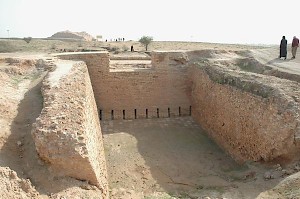
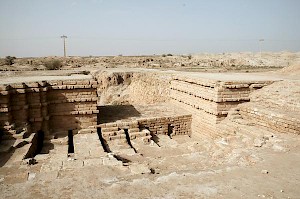












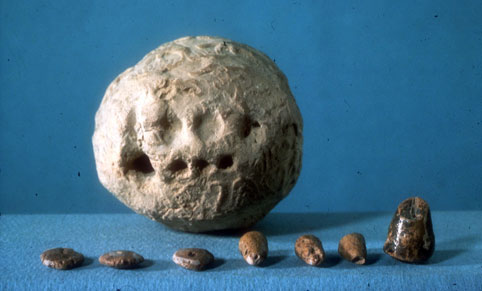
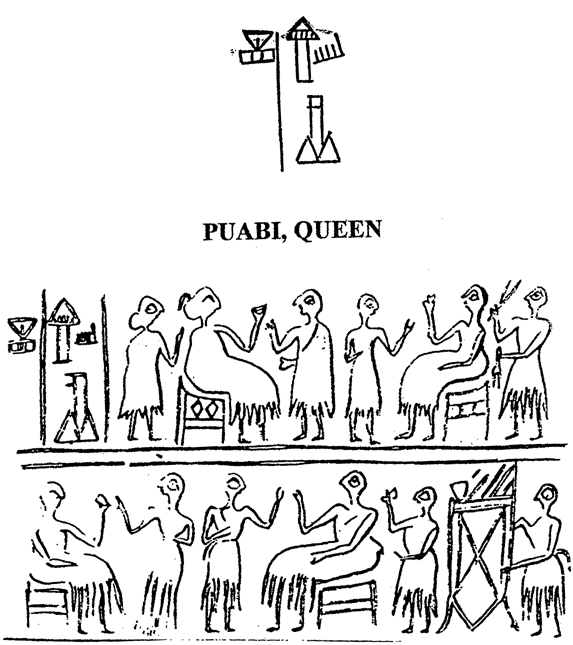


















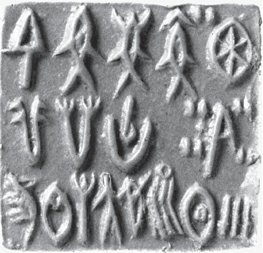
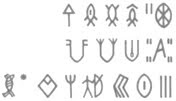 The last sign is wrongly identified in Mahadevan (ASI 1987, Sign 51)
The last sign is wrongly identified in Mahadevan (ASI 1987, Sign 51)  Nindowari seal 1
Nindowari seal 1
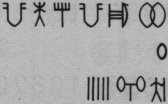




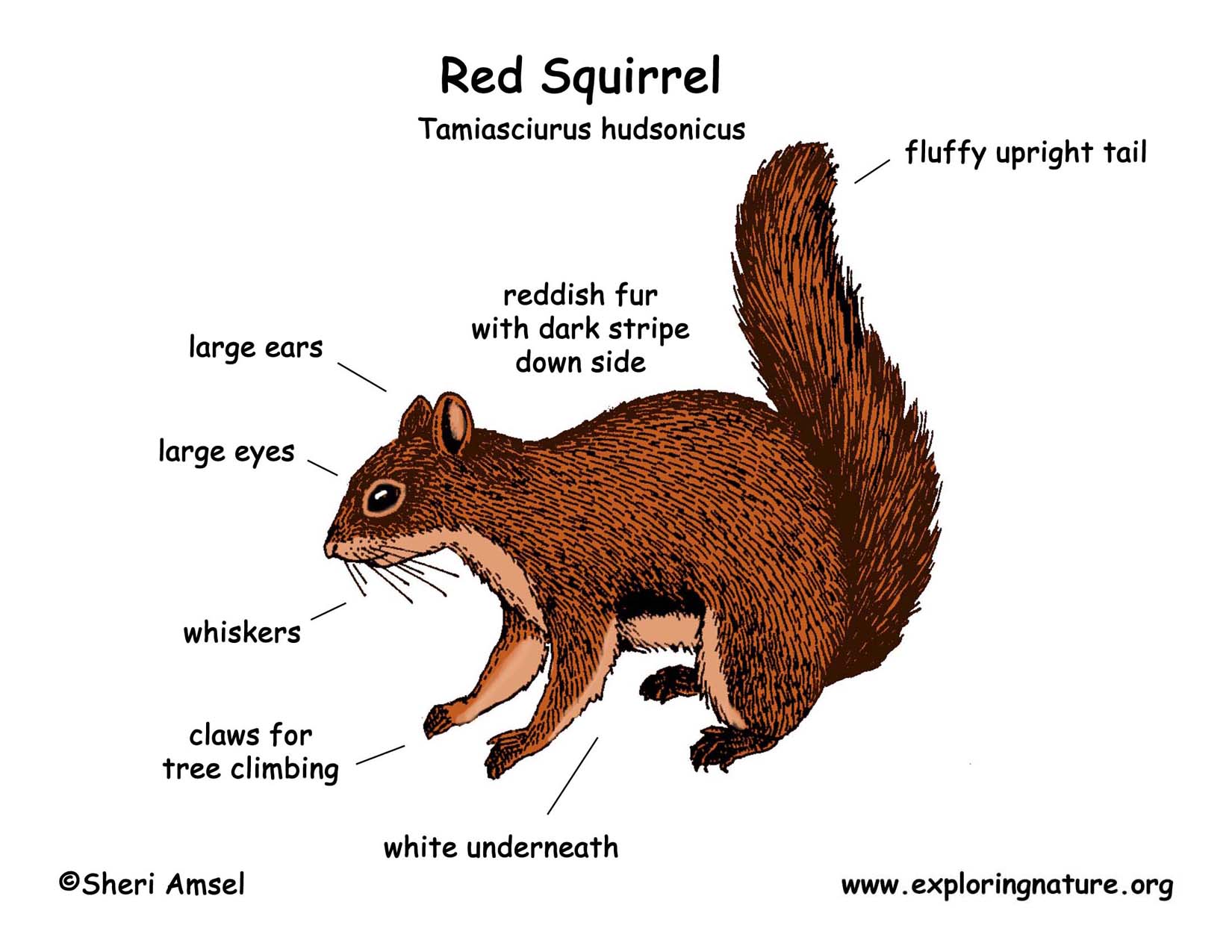
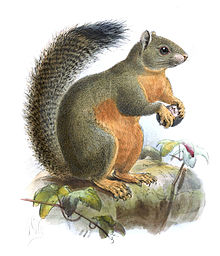 orange-bellied Himalayan squirrel
orange-bellied Himalayan squirrel Figures of squirrels eating found at Indus Valley. (Photo by Larry Burrows/The LIFE Picture Collection via Getty Images)
Figures of squirrels eating found at Indus Valley. (Photo by Larry Burrows/The LIFE Picture Collection via Getty Images) 






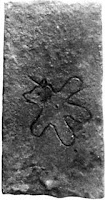


















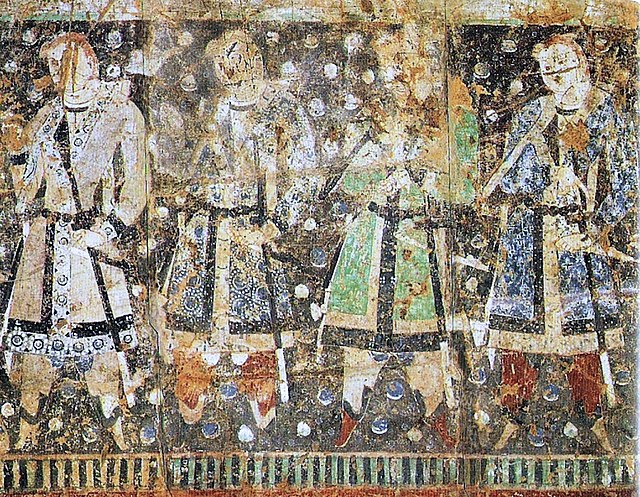



 “The ancient site at Purola is located on the left bank of river Kamal in District Uttarkashi. The excavation carried out by Hemwati Nandan Bahuguna University, Srinagar Garhwal. The site yielded the remains of Painted Grey Ware (PGW) from the earliest level along with other associated materials include terracotta figurines, beads, potter-stamp and the dental and femur portions of domesticated horse (Equas Cabalus Linn). The most important finding from the site is a brick alter identified as Syena chiti by the excavator. The structure is in the shape of a flying eagle Garuda, head facing east with outstretched wings having a square chamber in the middle yielded the remains of pottery assignable to circa first century B.C. to second century AD along with copper coin of Kuninda , bone pieces and a thin gold leaf impressed with a human figure identified as Agni.”
“The ancient site at Purola is located on the left bank of river Kamal in District Uttarkashi. The excavation carried out by Hemwati Nandan Bahuguna University, Srinagar Garhwal. The site yielded the remains of Painted Grey Ware (PGW) from the earliest level along with other associated materials include terracotta figurines, beads, potter-stamp and the dental and femur portions of domesticated horse (Equas Cabalus Linn). The most important finding from the site is a brick alter identified as Syena chiti by the excavator. The structure is in the shape of a flying eagle Garuda, head facing east with outstretched wings having a square chamber in the middle yielded the remains of pottery assignable to circa first century B.C. to second century AD along with copper coin of Kuninda , bone pieces and a thin gold leaf impressed with a human figure identified as Agni.” 








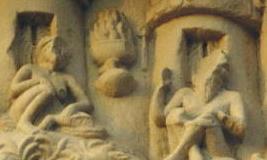

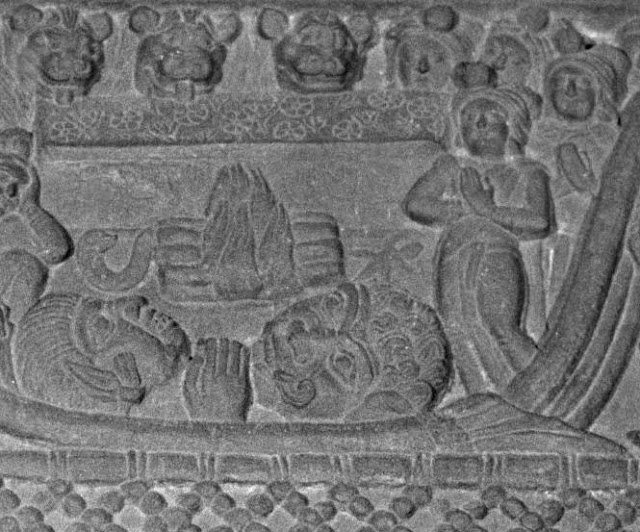










































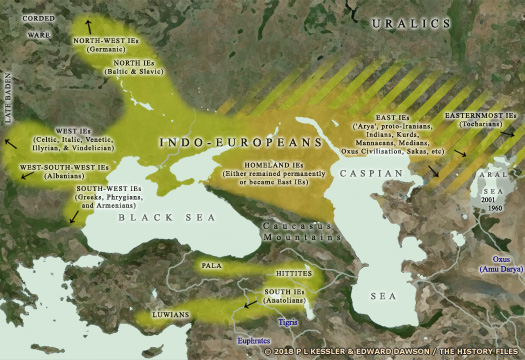
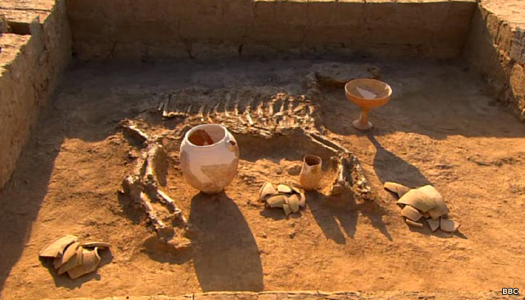
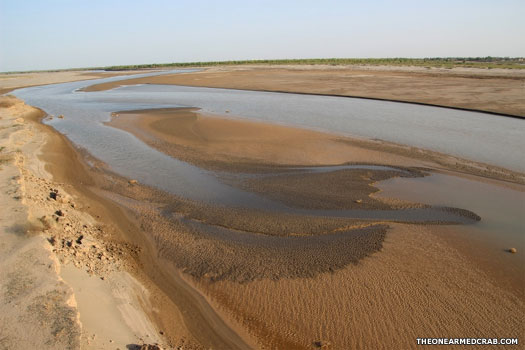
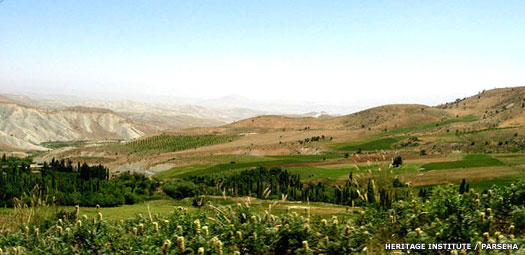
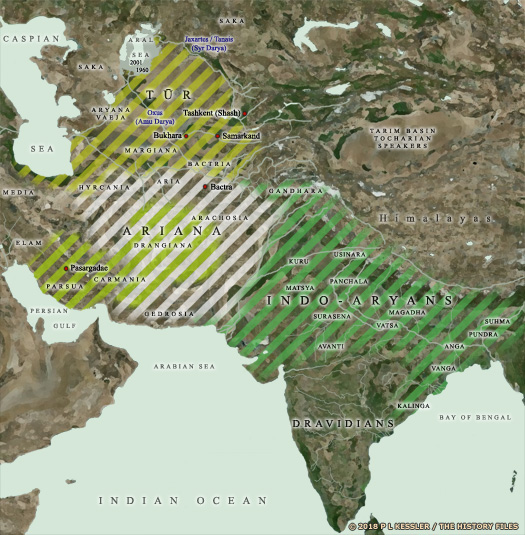



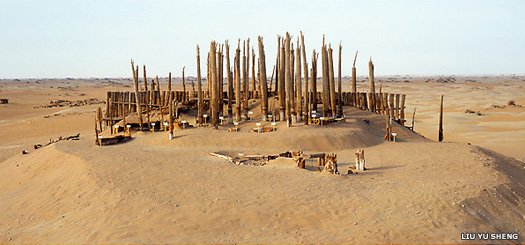


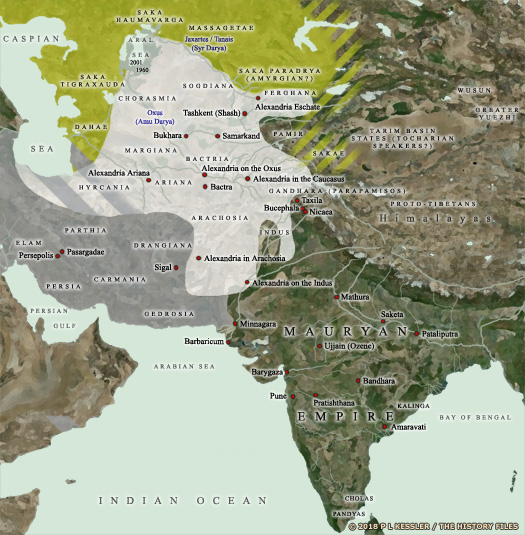
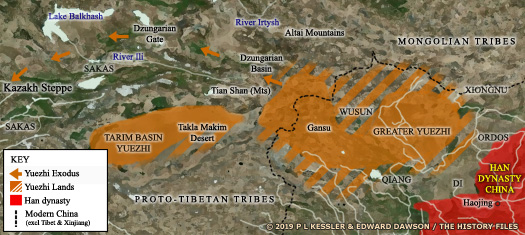
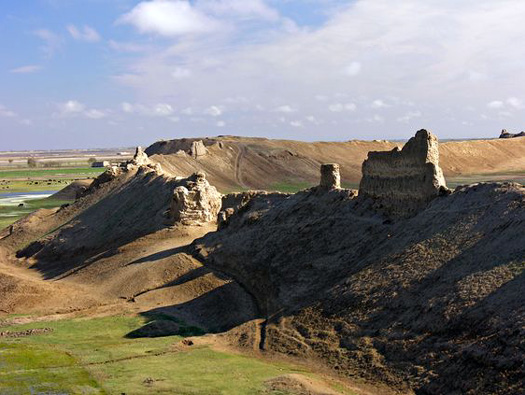
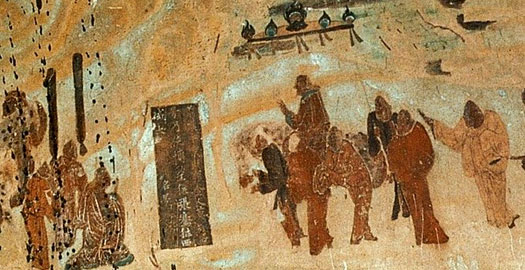
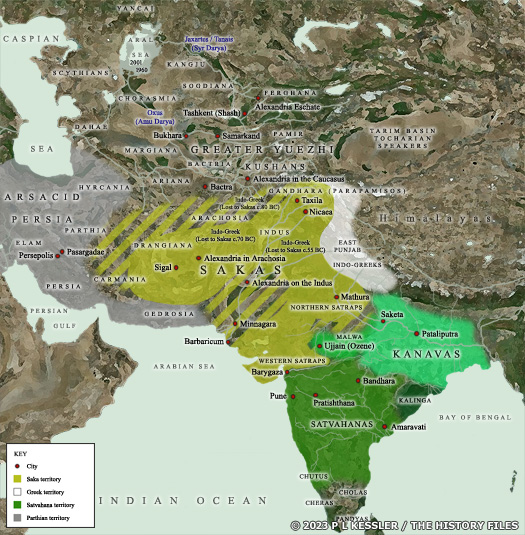
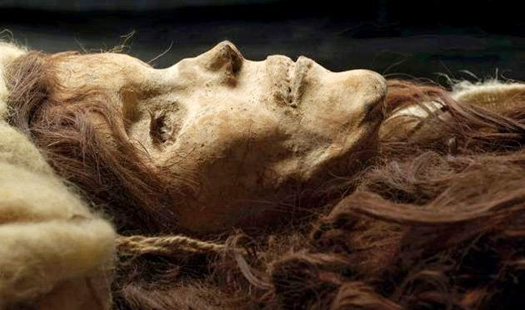

![In a Feb. 18, 2011 photo, the Beauty of Xiaohe, a mummy discovered in the Tarim Basin in far western... [+] China, is shown at the "Secrets of the Silk Road" exhibit at the University of Pennsylvania Museum of Archaeology and Anthropology in Philadelphia. The exhibit is scheduled to run through until March 15. Philadelphia is the final stop before the artifacts return to China. (AP Photo/Matt Rourke)](http://thumbor.forbes.com/thumbor/960x0/https%3A%2F%2Fspecials-images.forbesimg.com%2Fimageserve%2Fba215a390a4c43cc983d52b6999a4c79%2F640x0.jpg%3Ffit%3Dscale)











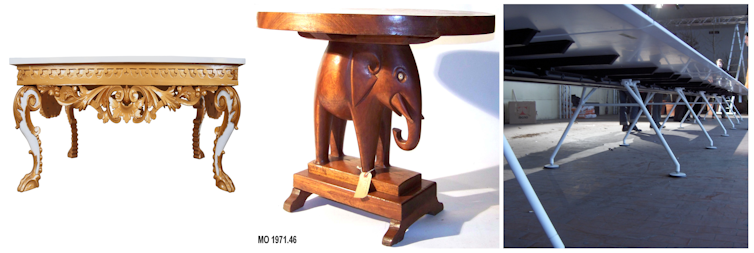
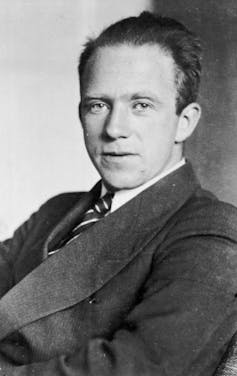
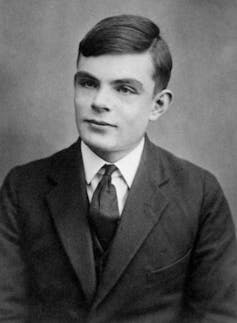
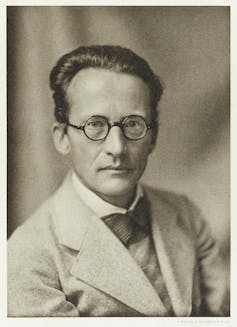




















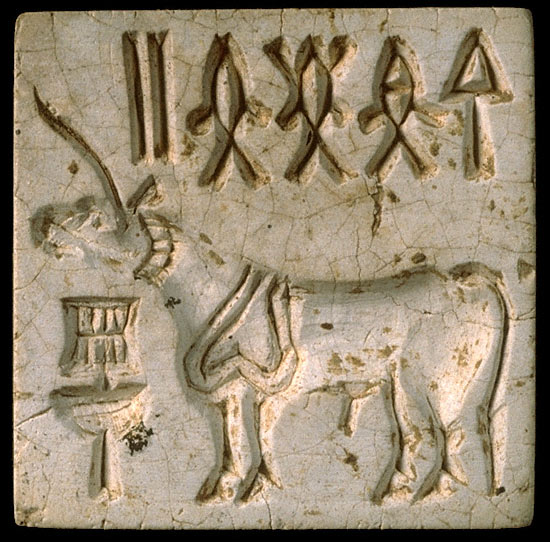



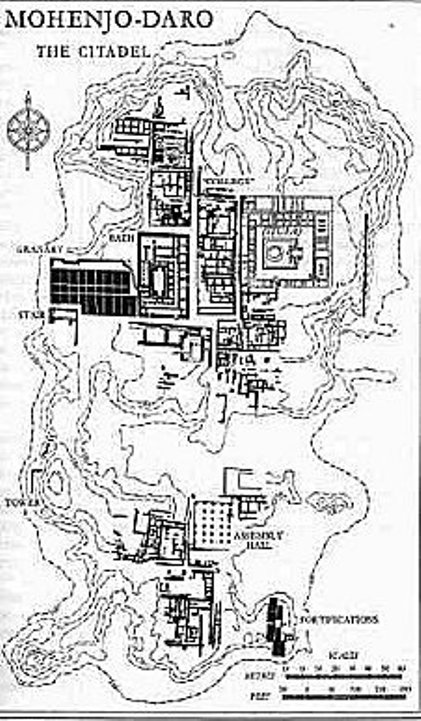












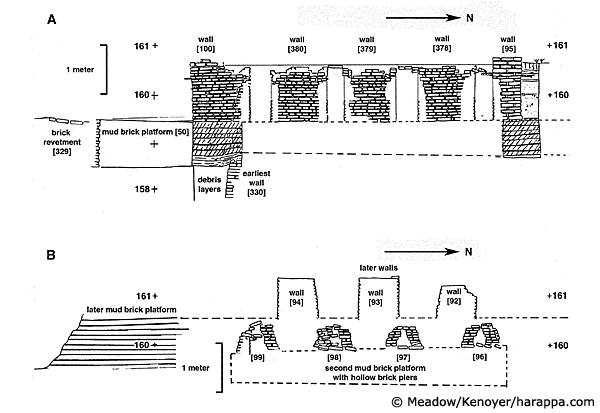
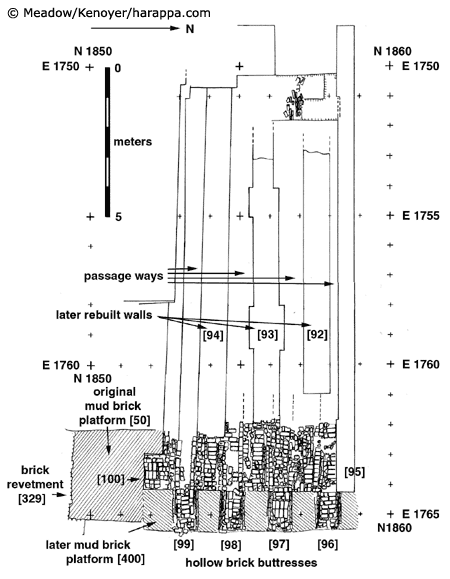


























































![Mohenjo-daro REM Granary Excavations [1176] Mohenjo-daro REM Granary Excavations [1176]](http://www.harappa.com/sites/default/files/slides/i-1176.jpg)






















